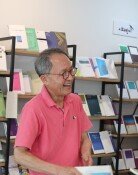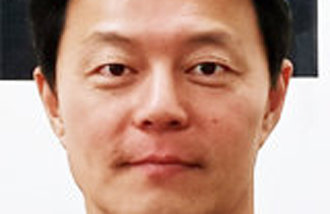Candidates ignoring low economic growth
Candidates ignoring low economic growth
Posted October. 08, 2012 04:58,
Ten major foreign investment banks have forecast Koreas economic growth rate this year at an average of 2.6 percent. Nine of the 10 banks expect growth to be in the 2-percent range and that the average growth rate for next year will be 3.3 percent. The Bank of Korea is likely to officially acknowledge in its report on the country`s economic outlook Thursday that growth will slide to the 2-percent range this year, a far cry from the government forecast of 3.3 percent for this year and 4 percent for next year.
The prolonged eurozone fiscal crisis, slowing growth in China, and the sluggish economy of the U.S. have all put a damper on Korea`s economic outlook. Korea has been suffering from high debt-to-equity ratios of not only households but also both public and private enterprises on top of the downturn in the real estate market. The country is now witnessing a pattern of low growth. The National Assembly Budget Office said, Koreas growth potential has been decreasing, estimating that the potential growth rate from this year to 2016 will be an average of 3.7 percent a year, which is lower than the 4.4 percent average from 2004 to 2007 before the global financial crisis and the average of 3 percent from 2007 to 2010 during and after the crisis.
Slow economic growth first hits the working class hard because the number of jobs decreases. As a result, temporary workers lose their jobs first. Small and medium companies, especially run and owned by the same person, suffer more than conglomerates. Thus, low growth is rightly called anti-welfare. Presidential candidates Park Geun-hye, Moon Jae-in and Ahn Cheol-soo have said many things but little on economic growth. All three candidates are focusing on achieving economic democracy to tackle inequality. Their plans to create jobs mainly resort to allocation of more budget to the public service sector. Without growth, all of their claims on things such as economic democracy or job creation will be illusory. Business leaders well assessed the promises of the candidates when they said there is no engine (growth) but brakes (regulations) in the words of presidential candidates.
Korea needs to find a new growth paradigm to over its low-growth pattern. Regulations on high value-added sectors, such as medical services, finance, human resources, information, knowledge, tourism and education, need to be abolished. Innovations should be made in new growth engines including technologies related to information, bio and green. These are the best ways to achieve economic growth and job creation. The three presidential candidates, however, have hardly talked about substantial issues because they are busy catering to the ears of voters. By ignoring key economic issues, however, they cannot help ease the peoples burden or succeed as president.
The one who has answers to the issues of a new growth paradigm is the one prepared to become President. Voters must make sure who has the answer to the economic growth issue that directly affects their livelihood.







